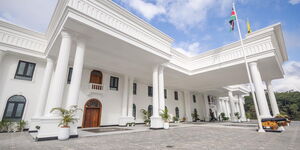A new bill is in the works to accord the Ministry of Treasury power to determine the sale prices of eight basic food products as it does for fuel products including super petrol, diesel, and Kerosene.
The Price Control (Essential Goods) (Amendment) Bill, 2024, which was presented in Parliament, proposed that the Treasury Cabinet Secretary should be accorded power to determine the minimum and maximum retail prices of the commodities among them maize and maize flour.
Other products on the radar are wheat, wheat flour, rice, cooking oil, sugar, and prescription medicine.
The Bill requires the CS to make the announcement via a Gazette Notice upon consultations with industry stakeholders.
If approved, the CS will also be empowered to declare any goods to be essential commodities and determine their minimum and maximum prices as well as the categories they belong to.
The Bill also provides that the minimum and maximum prices can be set based on costs, market conditions, and the importance of goods for economic development.
Treasury Ministry must, therefore, consider severe disturbances on the market, the significance of the particular essential goods, the strengthening of the competitive capabilities of the domestic market, and the consumer purchasing power before determining the prices.
The CS will be expected to designate a department to monitor and enforce price controls upon gazettement.
The department will be headed by the director of price control and will be tasked with monitoring compliance, monitoring prices for abnormal increases, collecting and analysing market data, and enforcing price control directives.
Other functions will include making recommendations to the government based on analysis, educating the public regarding the prices, and maintaining comprehensive data on price fluctuations.
"The Cabinet Secretary shall designate such public officers as are necessary to serve as price control officers in the unit for the proper and efficient discharge of the functions of the unit under this Act," read the bill in part.
The bill came months after Kenyan youth protested the state's attempt to introduce and increase taxes lamenting a high cost of living.
The protests, which broke out in June, forced President William Ruto to withdraw the Finance Bill in its entirety. Earlier, the Ruto regime had claimed that it put measures in place that it revealed had lowered prices of essential commodities such as maize flour and cooking oil.












